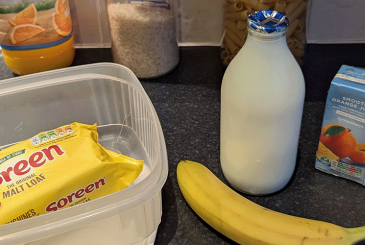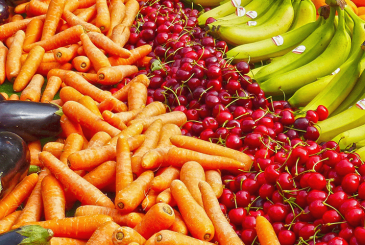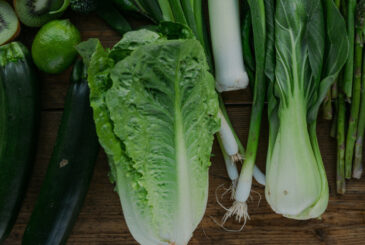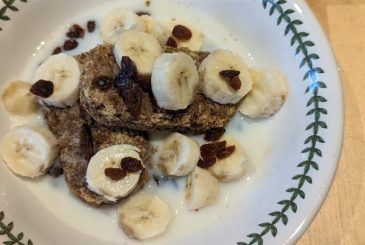Hatty Bates explores why it’s important to stay hydrated and suggests some healthy strategies
Hydration is crucial for good health and to keep our bodies performing at their best. Throughout the summer, we may be more considerate of what and how much we drink; the days are warmer, we visibly sweat more, and a cold glass of water feels much more appealing. However, even in the winter months, we are still at risk of becoming dehydrated.
Not only do lower temperatures mean that we are likely to drink less, but factors such as heating, a decreased thirst response and wrapping up warm causing us to sweat more could increase the likelihood of becoming dehydrated. This article will answer some commonly asked questions about how to stay hydrated throughout the winter.
How much fluid should I be drinking?
As a rough guide, on a rest day aim to have a minimum of two litres of fluid, or approximately 35ml/kg body weight. This can easily be achieved by adopting some simple and easy habits such as:
- Drink a pint of water alongside all main meals.
- Have a glass of juice (150ml) first thing in the morning.
- Set a reminder to drink.
- Keep a water bottle with you throughout the day.
- If it will encourage you to drink more, add flavour to you water such as lemon, cucumber, or cordial.
Remember on training days you will need to drink more than two litres (or 35ml/kg) to replace the fluids you have lost through sweating.
How do I know if I am drinking enough?
Feeling thirsty is a sign that you may already be dehydrated. Other symptoms may include headaches and dizziness, lack of energy and being unable to concentrate as well as dry skin. One good indication of your hydration status is the colour of your urine. A light straw-coloured urine is an indicator of good hydration, whereas darker colour urine is a sign your body needs more fluid.
What drinks count towards daily fluid intake?
Most drinks will help when it comes to hydration; water, fruit juice, squash, milk, tea and coffee all count towards your daily fluid intake. Some people may believe that caffeinated drinks such as tea and coffee can cause dehydration, however that is not the case. Coffee is a diuretic meaning that it could increase urination frequency, however it won’t cause you to lose more fluid than you’re getting from the coffee itself. That being said, you won’t be getting the same hydration benefits when comparing a cup of coffee to water. It should also be noted that too much caffeine may negatively affect some people e.g., increase blood pressure, agitation and decrease sleep quality.
In addition, about 20-30% of the fluids we consume comes from food. Fruit and vegetables tend to have a higher water content compared to other food. Therefore, not only could consuming your five portions of fruit and vegetables help prevent illness but it could also help you stay hydrated too.
What should I drink before training?
Optimal hydration can positively effect both physical and cognitive performance. Therefore, turning up to training well-hydrated is essential. Aim to have at least 5-7ml/kg and 3-5ml/kg of water alongside your pre-exercise meal and snack, respectively.
What should I drink during training?
It is hard to be prescriptive about how much fluid you need to drink during a training session. Everyone will be different due to factors such as individual sweat rate and environmental conditions.
One thing you may want to consider is the composition of the drink you have during training. For example, you may want to fuel long training sessions by consuming a carbohydrate-based drink. Similarly, you may wish to have a pint of milk throughout a weights session if your goal is to increase muscle mass or strength.
How do I rehydrate after training?
Training in the winter can still be thirsty work, especially when embracing the cold and wrapping up in multiple layers. After training, replacing the fluids and minerals lost through sweating is essential.
“Having a milk-based smoothie following training will help with rehydration and could also help replenish energy stores and repair muscles”
Some athletes may wish to employ “weighing-in and weighing-out” methods to help guide rehydration strategies. If you weigh yourself both immediately before and after a training session, the difference between these two measurements will indicate how much fluid you have lost through sweating. For every kilogram lost, you will need to drink 1.5L to sufficiently rehydrate.
Drinking fluids after exercise is important to replace fluid losses, but in addition sipping on fluids and drinking alongside meals and snacks is also beneficial. This is because the sodium content in food will help the fluid to be retained in the body leading to better rehydration.
You should also consider the composition of your drink. As an example, having a milk-based smoothie following training will not only help with rehydration but it could also help replenish energy stores and repair muscles due to the carbohydrate and protein content, respectively.
Summary
Good hydration is important for health and performance. It is important to remember that despite colder weather we are still at risk of becoming dehydrated throughout the winter months. Forming good habits and behaviours, such as sipping on water throughout the day, is particularly important when it comes to hydration. In addition, pay particular attention to the volume and type of drinks you are having in the lead up to, during, and after training to support performance.
Photo: Henry Law










